When Do Babies Start Laughing and How to Make Them Giggle
From saying their word to taking their first step, there are several memorable milestones that a child covers, and laughing for the first time is another gem of a milestone that does nothing but swell up our hearts after seeing that magical smile. But when do babies start laughing? Most babies have their first laugh around four months, but it is different for every child, which is totally normal. A baby’s first laugh is a mesmerising milestone parents await patiently. Each milestone covered is a check that confirms your baby is growing and developing healthily. A newborn laugh is infectious and is a sign that your baby is communicating, alert, and responsive. If your child has yet to cover this milestone or has skipped it, read the article to learn more about when babies giggle and laugh and what you can do to make them laugh.
When Do Babies Start to Laugh?
Laughter is a form of self-expression and communication that babies learn early in their infancy. ‘What age do babies laugh?’ is a frequent question among parents. Most babies typically start laughing around the age of 4 months, but it is important to keep in mind that each baby has a unique growth rate. So, if your baby is 4 months old and has yet to have their first laugh, it is totally fine (1). By the time they are six months old, their cooing and chuckling will have evolved into fuller laughs (2).
Before your baby’s first laugh, they will learn to coo and smile. Although different milestones, smiling and laughing are related. Your little peanut will learn to smile around 6 to 8 weeks or by the end of their second month, much earlier than they begin laughing (3). Smiling is also a form of self-expression and will put the foundation of the bond you create with your baby. After the smiles and coos become regular, you can keep an eye out for giggles and laughs.
You may expect your baby’s first laugh around one month after their first smile, but it could also be two or three months later. So, dear parents, be patient and keep your camera ready to capture magical moments from the moment they start smiling and chuckling to laughing.
What Makes Infants Laugh?
Infants are in the stage of discovering how the world works and how sounds feel, and hence, lack a sense of humour at such an early age. Their laughter in the early stages does not mean they are having a good time, but it is often their reaction to stimuli. They will develop a sense of humour over the next six months as their cognitive ability develops (4).
For instance, bouncing on a knee will bring laughs and giggles because it provides physical excitement (5).
In later months, around 6 months of age, babies will start understanding their surroundings and slowly learn various emotions, such as surprise and delight, and process laughter based on that.
Games like peekaboo and pat-a-cake bring the surprise factor that will make babies giggle and laugh out loud.
How to Make an Infant Laugh?
Making a baby laugh is no rocket science. Here are some tips to make a baby laugh:
1. Make Silly Sounds
Babies love silly sounds and expressions. Become goofy and make as many popping or kissing sounds as you can, and see their face light up with glee. You can also make squeaky sounds or blow your lips together.
2. Blow Raspberries
Blowing raspberries on your little peanut’s tummy is hands-down the classiest and one of the best ways to make your baby laugh. The combination of funny sounds and tickling on the belly is sure to elicit a laugh from anyone. Keep in mind that you are blowing raspberries on your baby, so be gentle and make sure they are comfortable and you’re not too extreme.
3. Play Social Games
Social games like peekaboo are a great way of making babies laugh. Babies usually respond to games like peekaboo around the age of four to six months. Even if the action doesn’t elicit any reaction, repetition of words and funny faces can lay the foundation for communication.
4. Noisemakers
Noisy baby toys, such as those with zippers or bells, are also a good way to catch your baby’s attention. Try different noise makers to learn what makes your little one laugh.
5. Mimicking Baby Sounds
Babies are like sponges; they try to mimic everything they see. Make them laugh by mimicking them. When they babble, you babble the same, or when they blow a raspberry, you also blow a funny raspberry.
What Should You Do If Your Baby Doesn’t Laugh?
If your little pocket of sunshine is between 4 and 6 months of age and hasn’t started chuckling or laughing by now, don’t panic. The growth and development of all babies are unique, and each baby develops at their own pace. Your little one needs some more time to meet their milestones. However, if you still feel something is off and have concerns about their development, don’t hesitate to consult your paediatrician.
In some cases, some babies may be more serious and prefer not to crackle every now and then. This might be considered fine if they happily meet all other milestone criteria.
Lack of response to sounds or laughter could indicate hearing issues. Thus, it is essential to be aware of the signs and have your child diagnosed around 6 months of age to rule out any potential possibilities.
FAQs
1. When do babies laugh out loud?
You may expect your little munchkin to unload their first big laugh around 6 months of age (2).
2. When do babies laugh in response to social activity?
Babies may start responding to social games like peekaboo with a smile or laugh around the age of 9 months. So, keep your camera ready to capture those picturesque moments and cherish them forever.
3. Why do babies laugh?
Babies smiling, chuckling, and laughing are all integral to their social and emotional development. These are early forms of communication that convey contentment, just as they express resentment or dislike through crying. Initially, laughter or smiles are most likely a content reaction, but as they understand your response to their giggles and laughs, they may simply do that again to capture your attention, or they might love the sound or feel of laughing.
4. Why do babies smile or laugh in their sleep?
Have you ever seen a baby smiling in their sleep? Well, it’s common for babies to smile or twitch in their sleep. Most likely, it’s because your baby is transitioning to an active sleep cycle, which can cause involuntary movements like twitching or smiling. However, there’s no clear explanation as to why babies smile or twitch while sleeping.
Babies’ laughter is infectious and heartwarming, and parents patiently wait for the moment to hear their little one’s sweet giggles. Laughter is also a wonderful milestone babies achieve. However, it is essential to remember that each child develops and grows at their unique pace. Therefore, it is possible that some babies achieve the milestone early or on time, while others reach that phase a little later. Every case is OK. Resist comparing your little one to other children, and instead, enjoy their milestones with them, strengthening the bond.
References/Resources:
1. CDC – Important Milestones: Your Baby By Four Months
2. CDC – Important Milestones: Your Baby By Six Months
3. American Academy of Pediatrics – When do babies first smile?
4. American Academy of Pediatrics – Emotional and Social Development: 4 to 7 Months
5. American Academy of Pediatrics – Emotional & Social Development in Babies: Birth to 3 Months
Also Read:
When Do Babies Start Sitting?
Babies Start Rolling Over
When do Babies Start Standing
When Do Babies Start Smiling?
Help your Baby to Sit Up on His Own
Was This Article Helpful?
Parenting is a huge responsibility, for you as a caregiver, but also for us as a parenting content platform. We understand that and take our responsibility of creating credible content seriously. FirstCry Parenting articles are written and published only after extensive research using factually sound references to deliver quality content that is accurate, validated by experts, and completely reliable. To understand how we go about creating content that is credible, read our editorial policy here.





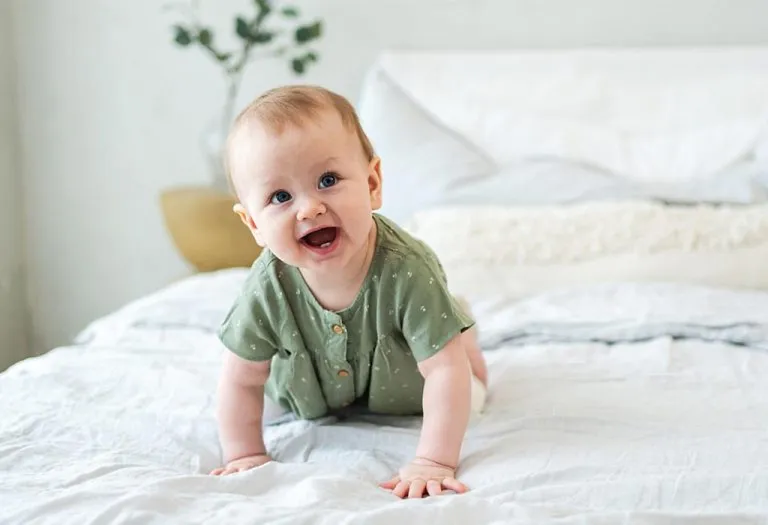
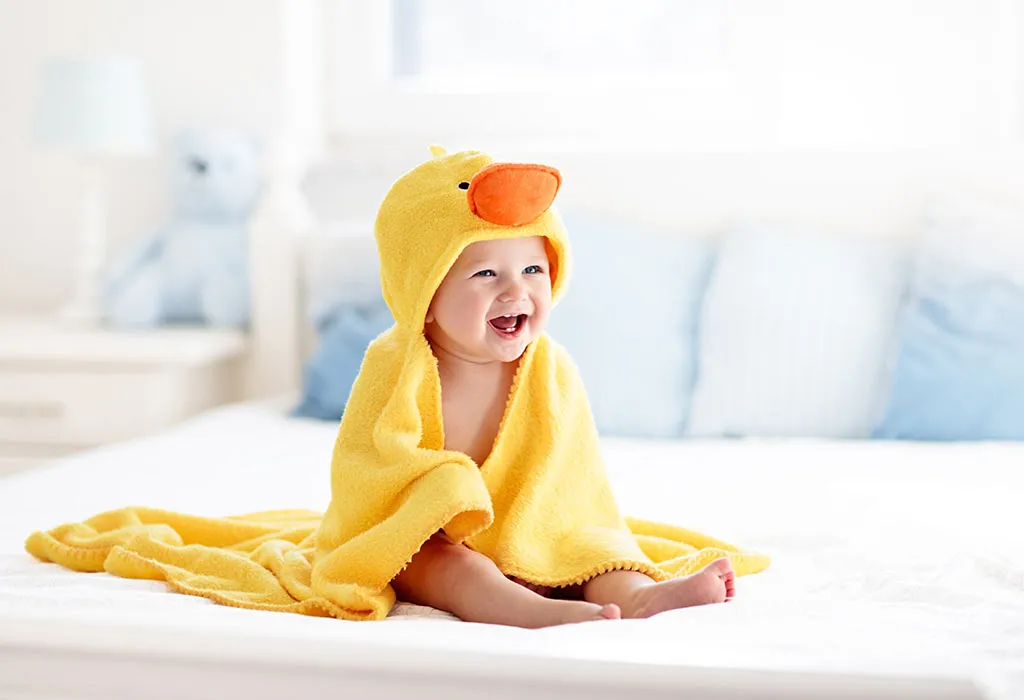
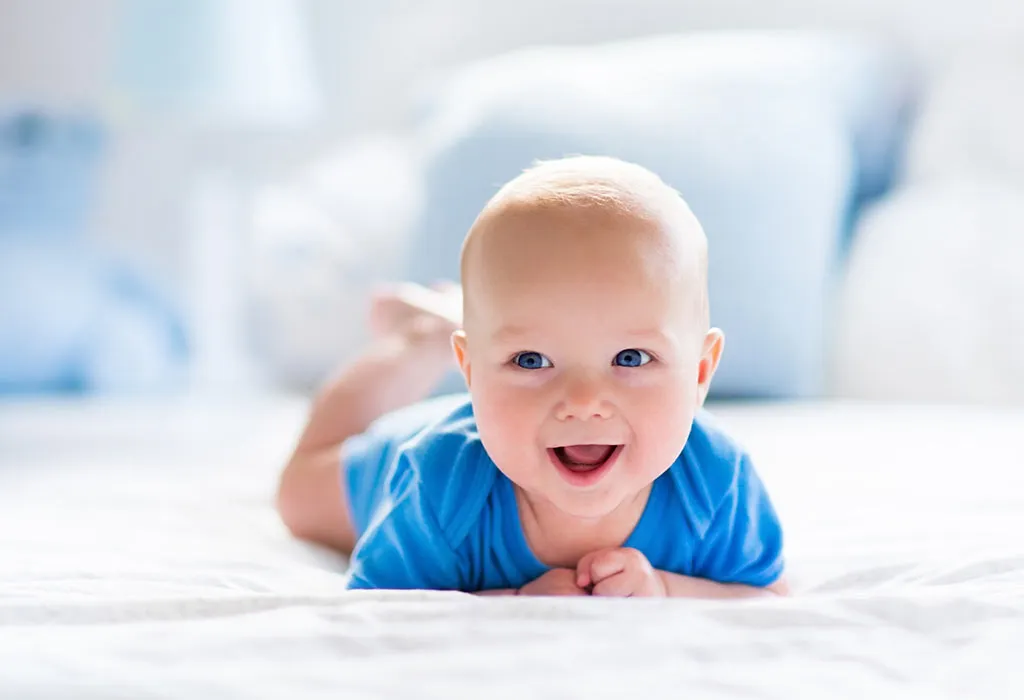
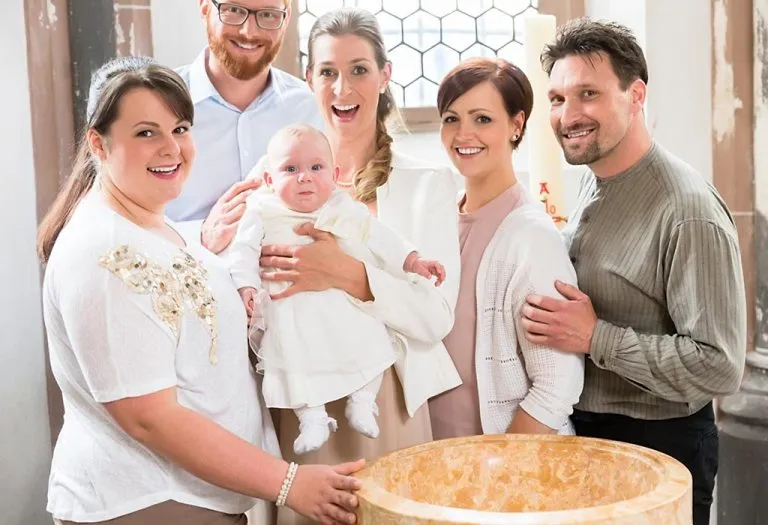
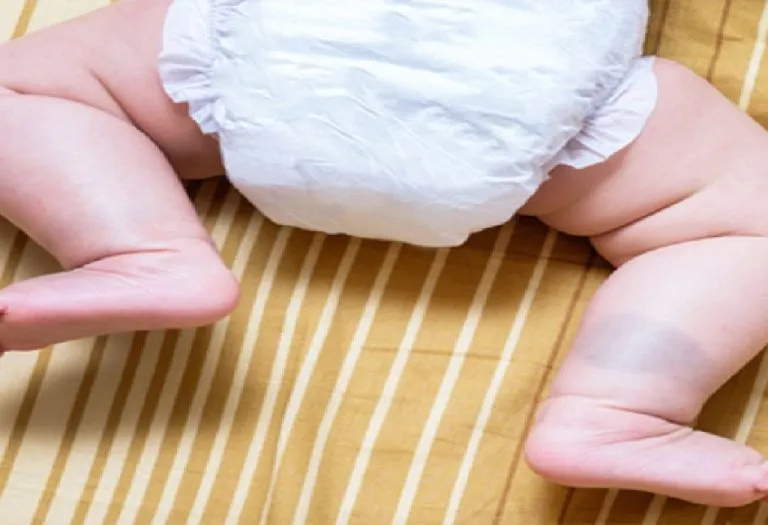
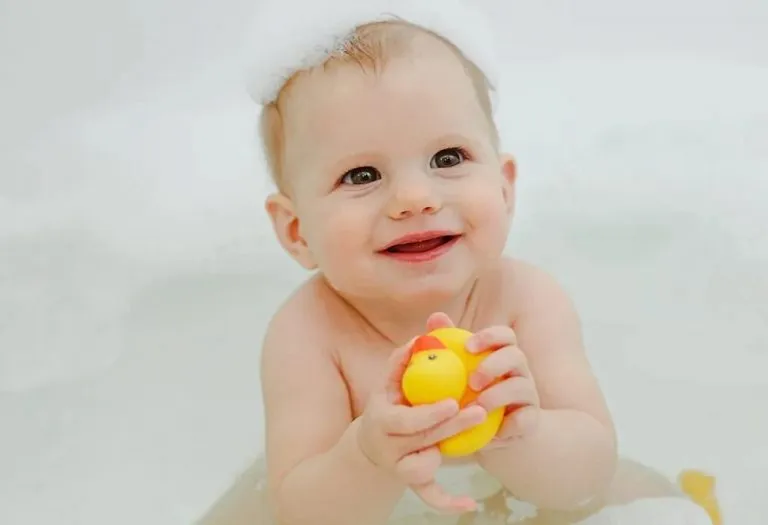
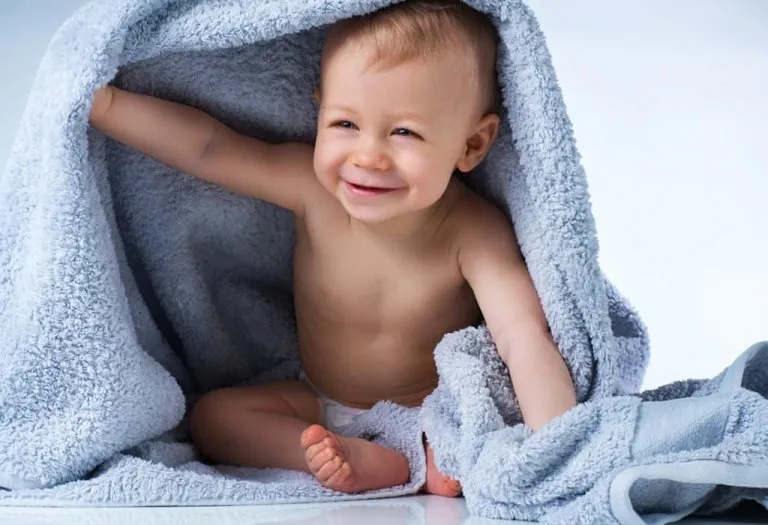
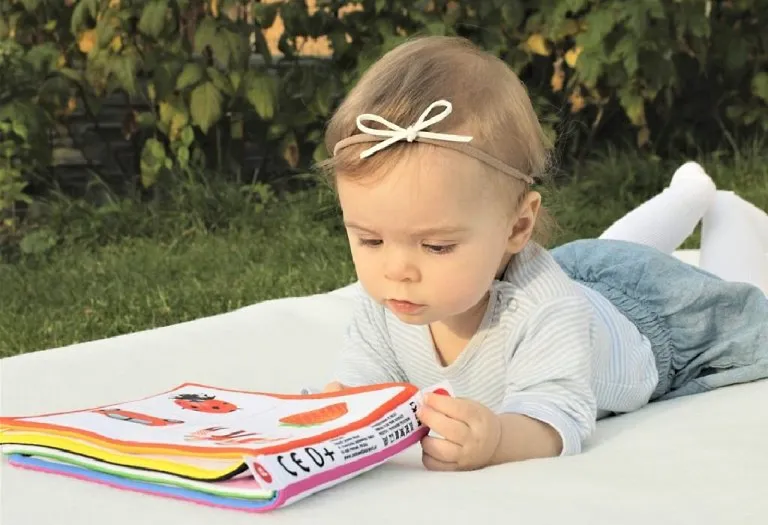
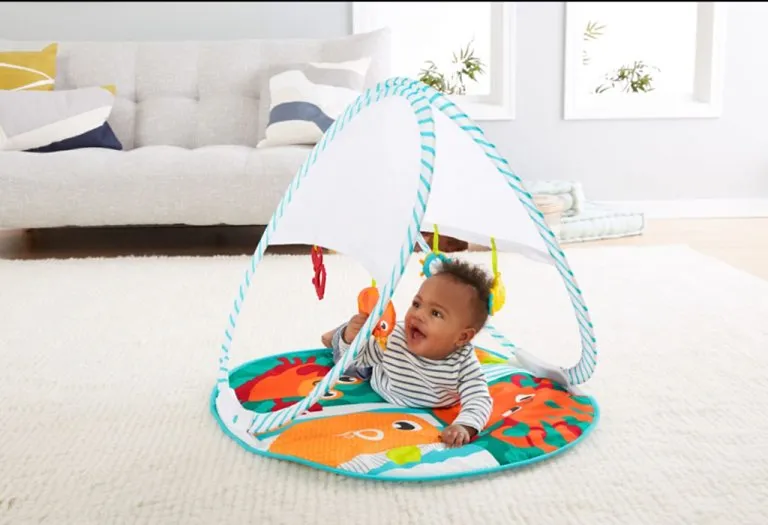

.svg)


















